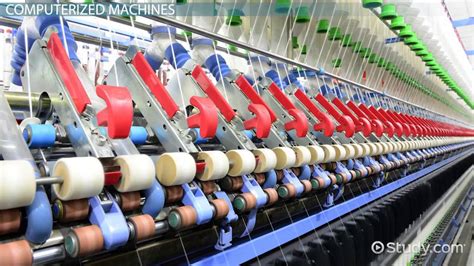The textile industry has been a cornerstone of human civilization for centuries, providing us with clothing, shelter, and other essential materials. However, traditional textile manufacturing processes have significant environmental and economic drawbacks. The good news is that dry-tech, a revolutionary technology, is transforming the textile industry in exciting ways.
Dry-tech, short for "dry technology," refers to the use of innovative methods and materials that minimize or eliminate the need for water in textile production. This approach not only reduces the industry's water footprint but also decreases energy consumption, pollution, and waste generation. In this article, we'll explore five ways dry-tech is revolutionizing the textile industry.
1. Sustainable Fabric Production
Traditional textile manufacturing relies heavily on water-intensive processes, such as dyeing, bleaching, and washing. These processes not only consume vast amounts of water but also generate large quantities of wastewater, which often contains hazardous chemicals. Dry-tech fabric production, on the other hand, uses advanced technologies like 3D printing, laser cutting, and digital printing to create fabrics with minimal water usage.

Companies like Orange Fiber, an Italian startup, are using dry-tech to create sustainable fabrics from citrus juice byproducts. Their innovative approach not only reduces water consumption but also upcycles waste materials, minimizing the environmental impact of textile production.
Benefits of Dry-Tech Fabric Production
- Reduced water consumption
- Decreased energy usage
- Minimized waste generation
- Improved fabric quality and durability
- Enhanced sustainability and eco-friendliness
2. Waterless Dyeing and Finishing
Textile dyeing and finishing processes are notorious for their high water consumption and environmental pollution. Dry-tech offers a game-changing solution with waterless dyeing and finishing technologies. These methods use advanced chemicals, enzymes, or plasma treatments to achieve the desired color and texture without water.

Companies like DyStar, a leading textile dye manufacturer, are developing innovative waterless dyeing solutions that not only reduce water consumption but also improve color consistency and fabric quality.
Benefits of Waterless Dyeing and Finishing
- Eliminates water consumption
- Reduces energy usage and costs
- Improves color consistency and fabric quality
- Minimizes environmental pollution
- Enhances sustainability and eco-friendliness
3. Energy-Efficient Textile Processing
Traditional textile processing methods, such as weaving, knitting, and finishing, are energy-intensive and contribute significantly to the industry's carbon footprint. Dry-tech offers energy-efficient textile processing solutions that minimize energy consumption while maintaining productivity and quality.

Companies like Stoll Knitting Machines, a leading textile machinery manufacturer, are developing innovative energy-efficient knitting machines that reduce energy consumption by up to 50%.
Benefits of Energy-Efficient Textile Processing
- Reduces energy consumption and costs
- Minimizes carbon footprint and environmental impact
- Improves productivity and efficiency
- Enhances sustainability and eco-friendliness
- Supports corporate social responsibility initiatives
4. Reduced Waste Generation
Textile production generates massive amounts of waste, including fabric scraps, yarns, and chemicals. Dry-tech offers innovative solutions to minimize waste generation and promote recycling and upcycling.

Companies like H&M, a leading fast-fashion retailer, are launching garment collecting initiatives to encourage customers to recycle their old clothes. The collected garments are then recycled or upcycled into new products, reducing waste generation and promoting sustainability.
Benefits of Reduced Waste Generation
- Minimizes waste generation and environmental pollution
- Promotes recycling and upcycling
- Reduces the need for raw materials and resources
- Enhances sustainability and eco-friendliness
- Supports corporate social responsibility initiatives
5. Improved Fabric Quality and Durability
Dry-tech textile production methods not only reduce environmental impact but also improve fabric quality and durability. Advanced technologies like nanotechnology and plasma treatment enable the creation of high-performance fabrics with enhanced strength, softness, and water repellency.

Companies like Nike, a leading sportswear brand, are using dry-tech to create high-performance fabrics that are not only sustainable but also offer improved comfort, durability, and performance.
Benefits of Improved Fabric Quality and Durability
- Enhances fabric quality and performance
- Improves durability and longevity
- Reduces the need for frequent washing and maintenance
- Promotes sustainability and eco-friendliness
- Supports corporate social responsibility initiatives






In conclusion, dry-tech is revolutionizing the textile industry in exciting ways, offering sustainable, energy-efficient, and innovative solutions that minimize environmental impact while improving fabric quality and durability. As consumers become increasingly eco-conscious, the adoption of dry-tech is likely to gain momentum, driving a more sustainable future for the textile industry.
We'd love to hear your thoughts on the future of dry-tech in the textile industry! Share your comments, questions, or opinions with us, and let's start a conversation about sustainable textile production.
What is dry-tech in the textile industry?
+Dry-tech refers to the use of innovative methods and materials that minimize or eliminate the need for water in textile production.
How does dry-tech reduce environmental impact?
+Dry-tech reduces environmental impact by minimizing water consumption, energy usage, and waste generation, while also promoting recycling and upcycling.
What are the benefits of dry-tech in the textile industry?
+The benefits of dry-tech include reduced environmental impact, improved fabric quality and durability, enhanced sustainability and eco-friendliness, and support for corporate social responsibility initiatives.
